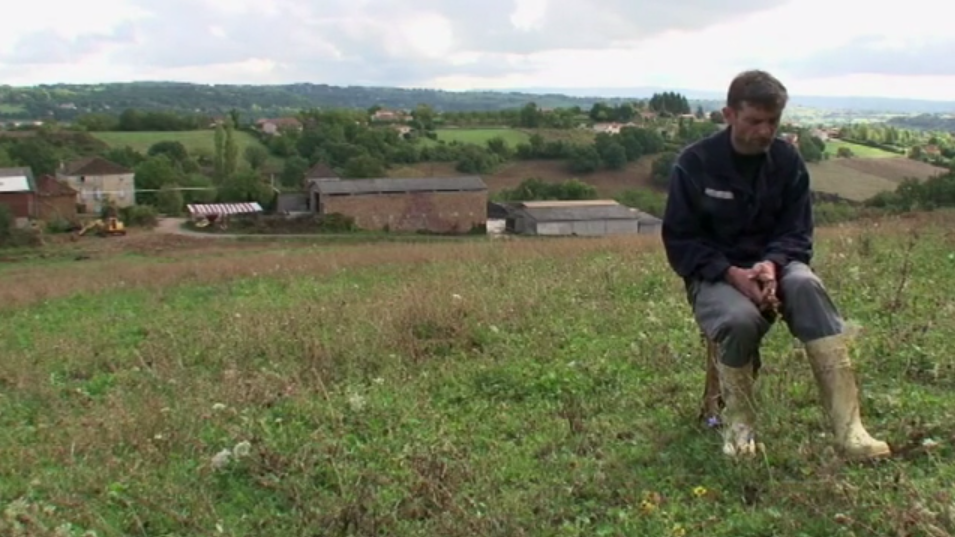
Out of the nearly 40 films featured in the Tales from Planet Earth film festival, nearly a quarter offer an appearance by a filmmaker or an ancillary roundtable discussion on a pertinent topic. In the case of Edouard Bergeon’s documentary Sons of the Land, a post-screening discussion on the modern farmer was not supplemental but rather essential.
Bergeon’s primary subject is Sébastien Itard, a French dairy farmer who’s battled with crippling debt after inheriting the family business. When Sébastien’s financial woes combine with 15 hour work days and a distant relationship with his pregnant wife, crushing depression begins to rear its head.. An early sequence follows one of Sébastien’s early mornings, waking well before daylight and milking cows alone in a barn for several hours before sunrise. Sébastien’s “good mornings” come from convenience store clerks and his groggy cows — at least, when he manages to show up for the work. Though formally “retired,” Sébastien’s father begrudgingly helps with the labor; on Sébastien’s more difficult mornings, he does everything himself. It’s clear much of their father-son dynamic has been eroded by the farm’s decreasing profits, but Bergeon also distills their shared stubborn isolation in shots of Sébastien’s mornings and empty bedrooms.
As an examination of growing depression rates, Sons of the Land is a dour watch, and its subject is a deeply personal one for director Bergeon, whose own farmer father committed suicide in 1999. Bergeon segments Sébastien Itard’s narrative with snippets of his own via photographs and pensive voiceovers, but much of it feels like cold window dressing, never embellishing what appears to be a significant problem in modern agriculture. Bergeon is never tactical when switching between Sébastien’s narrative and his own, making departures from either feel arbitrary. Sons of the Land’s most egregious mistake is its failure to illustrate the extent of economic disparity and depression as growing phenomena in agricultural, subjects the aforementioned post-screening panel — compromised of UW graduate students and a Minnesota cattle farmer — was instrumental in clarifying. The ending finds Sébastien and his father reconciling while finding a means to directly market their milk for profit . After so much darkness, it’s a refreshing note of optimism, with no roundtable discussion required.
